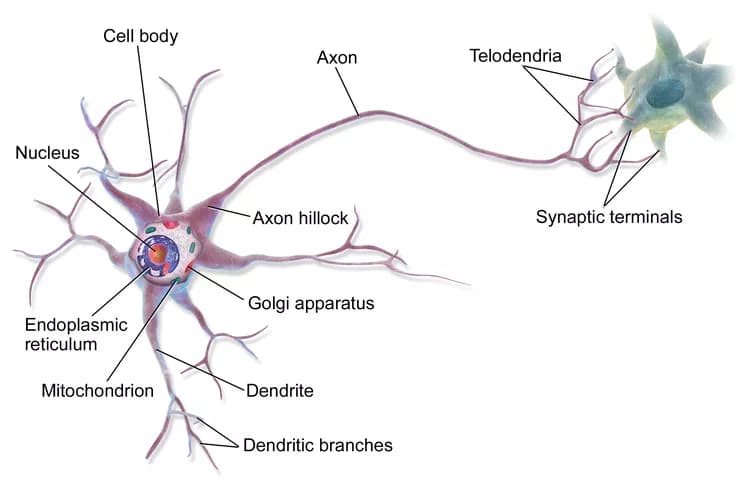One of the most common genetic disorders is a condition called neurofibromatosis, which causes brown spots on the skin and benign tumors on the brain, spinal cord and other parts of the nervous system.
Neurofibromatosis is one of at least 60 genetic diseases called neurocutaneous disorders that involve the skin, central nervous system, and/or peripheral nervous system, according to a comprehensive review article in the journal Current Neurology and Neuroscience Reports by neurologists at Loyola University Medical Center and Loyola University Chicago Stritch School of Medicine. Authors are Anna Carolina Paiva Costa T. Figueiredo, MD, Nikolas Mata-Machado, MD, Matthew McCoyd, MD and Jose Biller, MD.
Neurocutaneous disorders are caused by abnormal development of cells in the embryonic stage, leading to tumors in various parts of the body, including the skin, organs, bones, brain and spinal cord. Disorders may be inherited or develop from spontaneous mutations. Although treatments are improving, there are no cures for neurocutaneous disorders.
There are two types of neurofibromatosis, known as NF1 and NF2, and a related condition called schwannomatosis. NF-1 affects about 1 in 3,500 live births, or about 100,000 people in the United States, according to the article.
People with NF typically have brown spots on the skin called café-au-lait spots; soft bumps on or under the skin called neurofibromas; and tiny bumps on the iris called Lisch nodules. NF can cause a wide range of effects throughout the body, including learning disabilities; hyperactivity; headaches; hearing problems; short stature; facial drop; heart problems; numbness and weakness in arms or legs; balance problems; and bone deformities such as curvature of the spine.
Neurofibromatosis patients "are best managed by a multidisciplinary team of specialists aiming to maximize healthy growth and development and to treat complications as early as possible," the article says.
At Loyola Medicine, highly experienced specialists work as part of a clinically integrated care team -- including geneticists, otolaryngologists, head and neck surgeons, neurological surgeons, neurologists, ophthalmologists and other specialists -- to provide state-of-the-art management for neurofibromatosis.
Among the other more common neurocutaneous disorders are tuberous sclerosis complex, which affects about 1 in 5,8000 newborns and Sturge-Weber syndrome, which affects between 1 in 20,000 and 1 in 50,000 newborns.
Less common neurocutaneous disorders described in the article include Von Hippel-Lindau disease, hypomelanosis of Ito, pseudoxanthoma elasticum, xeroderma pigmentosum, ataxia-telangiectasia and Fabry disease.
The above post is reprinted from materials provided by Loyola University Health System. Note: Materials may be edited for content and length.
Disclaimer: DoveMed is not responsible for the adapted accuracy of news releases posted to DoveMed by contributing universities and institutions.
Primary Resource:
Figueiredo, A. C. P. C. T., Mata-Machado, N., McCoyd, M., & Biller, J. (2016). Neurocutaneous Disorders for the Practicing Neurologist: a Focused Review. Current neurology and neuroscience reports, 16(2), 1-17.
Related Articles
Test Your Knowledge
Asked by users
Related Centers
Related Specialties
Related Physicians
Related Procedures
Related Resources
Join DoveHubs
and connect with fellow professionals


0 Comments
Please log in to post a comment.